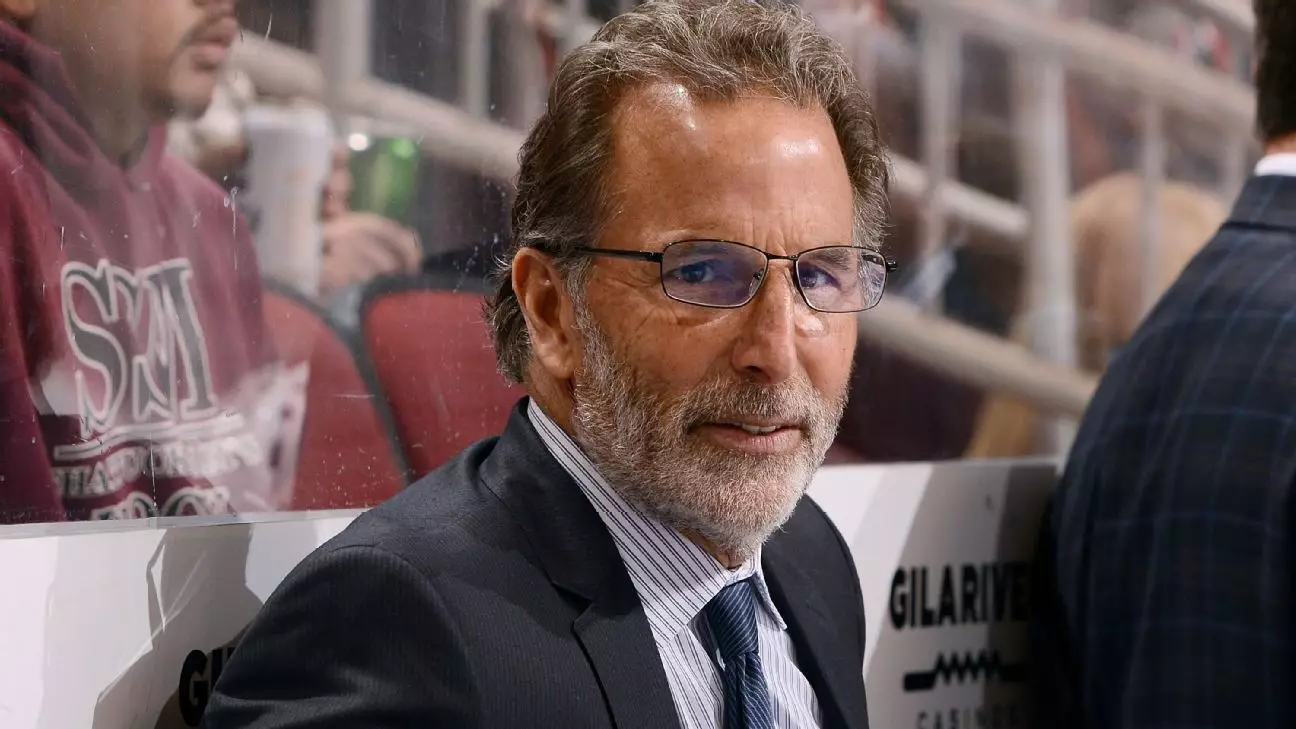The Philadelphia Flyers have made significant waves in the world of hockey by parting ways with their head coach John Tortorella. General manager Daniel Briere candidly acknowledged that the decision stemmed from philosophical discord with Tortorella. Revealing the complexity of the relationship, Briere expressed that Tortorella was “a blast to work with” but also a “complicated man.” This duality in characterization highlights the challenging nature of coaching at the highest levels of professional sports. Despite the turbulence, Briere credited Tortorella with contributing to his growth as a general manager. This makes the firing not just a swift reaction but a pivotal moment defined by strategic foresight—or perhaps desperation.
Tortorella’s tenure, marked by intensity and tough love, has evoked mixed reactions from players and fans alike. His outspoken nature and willingness to challenge both management and players have been a double-edged sword. While he aimed to foster resilience and accountability, the outcome on the ice did not align with these ideals. Under his leadership, the Flyers failed to make the playoffs across multiple seasons, languishing toward the bottom of the Eastern Conference. Briere noted that the team’s low points percentage was unsatisfactory, indicating a frustration that could no longer be processed with a simple “wait-and-see” approach.
A Perfect Storm of Factors
The culmination of a six-game losing streak and a particularly humiliating 7-2 defeat to the Toronto Maple Leafs precipitated intense scrutiny of Tortorella’s tactics and outlook. His shockingly candid remarks following that devastating loss, where he expressed a lack of interest in adapting his coaching style for a struggling team, seem to have struck a chord with Briere and the front office. It raises crucial questions about the relationship between coaches and management in professional sports: When does a coach’s brutal honesty move from being a sign of passionate leadership to an indication of underlying conflict?
Briere stated that the decision to fire Tortorella was relatively recent and grew “serious in the last few days,” suggesting that it was not an impulsive choice but rather a carefully weighed conclusion. This is indicative of a larger strategic re-evaluation taking place within the franchise, as they navigate the often treacherous waters of rebuilding while dealing with the emotional fallout from player trades and expectations.
Implications of the Interim Leadership
With associate coach Brad Shaw stepping in as interim head coach, there is a mixture of apprehension and hope among the fan base. The Flyers’ immediate victory over Montreal provided a temporary balm for a ailing organization, but long-term success hinges on the continuity of tactics and player development. It begs the question of whether Shaw can reshape the chemistry and direction of a team that has long suffered from a lack of cohesion and leadership. The subjective nature of coaching makes it imperative for the organization to ensure that the new leader resonates with players—especially emerging talents like Matvei Michkov, whom Tortorella had a profound impact on.
Briere’s comments on Tortorella’s coaching method indicate a recognition of the longer-term implications of a coaching style that employs “tough love.” The question for the Flyers’ management moving forward is how to cultivate a winning mentality without alienating younger or less experienced players. Ensuring that the new head coach can strike this balance will be paramount for any semblance of revival in the Flyers’ fortunes.
The Wider Context of Rebuilding
With the Flyers in a state of flux, it’s crucial to understand the overarching narrative of rebuilding facing professional franchises today. Briere confirmed that the fluidity of team composition—characterized by recent trades—has complicated Tortorella’s ability to effectively coach a fragmented squad. In contemporary sports, the balance between nurturing talent through losses and maintaining a competitive edge is a precarious one. The Flyers’ decision should act as more than just a reaction to stress—their situation reflects a larger understanding of historical team dynamics, the expectations of a fervent fanbase, and the clarity needed in a rebuild.
While John Tortorella’s time with the Flyers was emblematic of both potential and pitfalls, Briere and the organization now face the critical task of redefining what success looks like. The new leadership must not only improve the team’s standings but also foster an environment that encourages growth, accountability, and unity—a challenging but essential endeavor in today’s professional sports landscape.


Leave a Reply